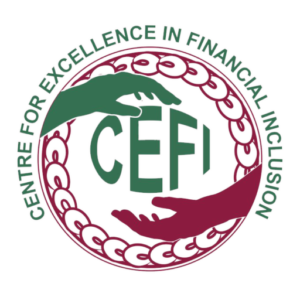Joint Media Release
For Immediate Release
Friday June 21, 2024
The National Superannuation Fund (Nafsund) Limited signed a Memorandum of Understanding (MoU) with the Centre for Excellence in Financial Inclusion (CEFI) on June 21, 2024.
This MoU is a three year partnership between Nasfund and CEFI that enables both organizations to work together in enhancing superannuation awareness with CEFI’s Financial Inclusion Activities.
CEFI’s collaboration with Nasfund is important as this will advance superannuation awareness within CEFI’s Financial Literacy Training Program and assist CEFI also in incorporating superannuation into schools curriculum activities plus supporting Provincial Government Engagement Programs.The main activities during the three year partnership will include;
- Advancing superannuation awareness within CEFI’s Financial Literacy Training Program by jointly producing 3-5 minutes financial literacy and superannuation videos for awareness purposes to promote financial inclusion in Papua New Guinea
- Assist CEFI with the integration of superannuation into Financial Education for schools Curriculum Project through the department of Education, Curriculum Development Division.
- And support CEFI by participating in the Provincial Government Engagement Program involving conducting awareness behind the rationale of superannuation to the Provincial Steering Committee Members and collaboratively organizing Savings for Young Mind campaigns via superannuation across designated schools in the provinces.
CEFI’s Executive Director Mr. Saliya Ranasinghe when commenting on the MoU stated that the partnership between the two organizations is important as it highlights their commitment to expand financial inclusion awareness in Papua New Guinea.
Mr. Ranasinghe further elaborated that CEFI through this partnership with Nasfund will now be able to offer Papua New Guineans financial literacy and superannuation awareness through the activities outlined in the MoU.
“Financial literacy education plays a very important role as it’s brings new knowledge and changes people’s attitude.”
“We hope that this initiative will change the lives of Papua New Guineans to have a better understanding of superannuation and the importance of savings,” Mr. Ranasinghe said.
Nasfund CEO Rajeev Sharma said “Nasfund is proud to announce a series of strategic initiatives aimed at enhancing superannuation education and financial literacy among Papua New Guineans. As part of its commitment to fostering a culture of savings and retirement planning, Nasfund is rolling out three key programs: the School Superannuation Program, the Superannuation Literacy Program, and the long-standing Shopfloor Program.”
Nasfund’s strategic Key Performance Indicators prioritizes superannuation education and inclusion, focusing on the youth through the School Superannuation Program. This initiative targets school children and young people, educating them on the importance of saving and retirement planning from an early age. With the backdrop of high inflation and increasing life expectancy, instilling a savings culture among the youth is critical for ensuring a secure financial future.
Complementing the School Superannuation Program, Nasfund runs the Superannuation Literacy Program for its members and prospective members. This program is designed to deepen understanding of superannuation, providing guidance on effective budgeting and the benefits of maximizing voluntary contributions. “Developed with insights from staff training at the Centre for Excellence in Financial Inclusion (CEFI) in 2022, the program integrates comprehensive modules on savings and budgeting, ensuring that participants are well-equipped to boost their superannuation, “said CEO Sharma.
For over 20 years, Nasfund has been actively engaging with its members and contributing employers through the Shopfloor Program. This program involves regular visits to workplaces, creating awareness about superannuation and Nasfund’s range of products and services. The continuous engagement through the Shopfloor Program underscores Nasfund’s dedication to ensuring that its members are well-informed about their retirement options.
At the core of Nasfund’s initiative is the belief that information is crucial. By educating its members today, Nasfund aims to ensure they are “Ready for Tomorrow” with a well-secured retirement. Through its comprehensive educational programs, Nasfund is empowering members with the knowledge and tools necessary to make informed decisions about their financial future.
Ends.
For further information on the work of CEFI please contact CEFI Communications Team: +675 3225300, email: lomaro@thecefi.org or visit www.thecefi.org






